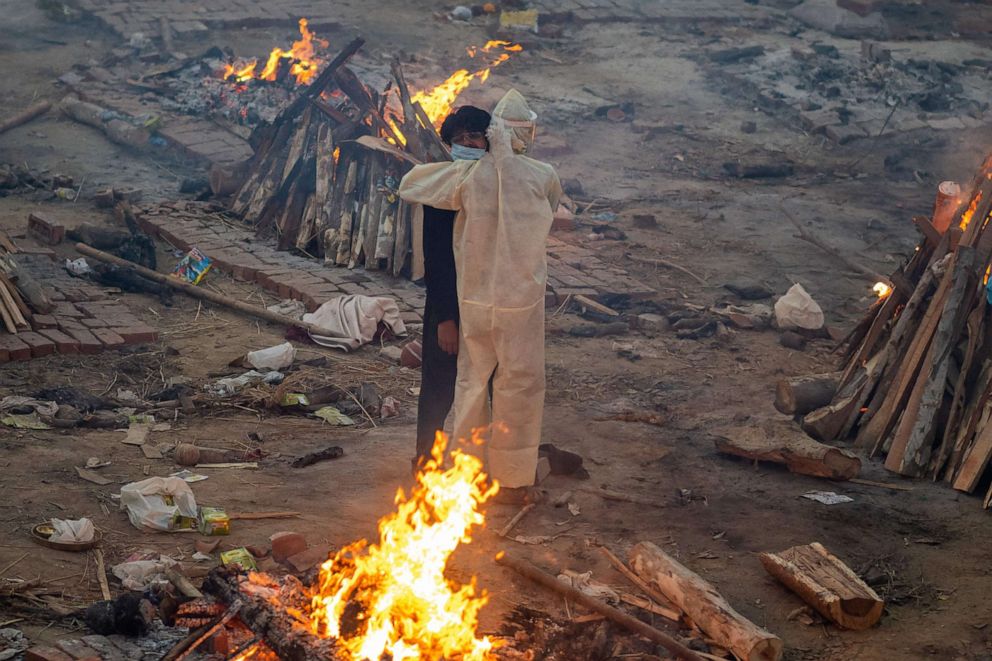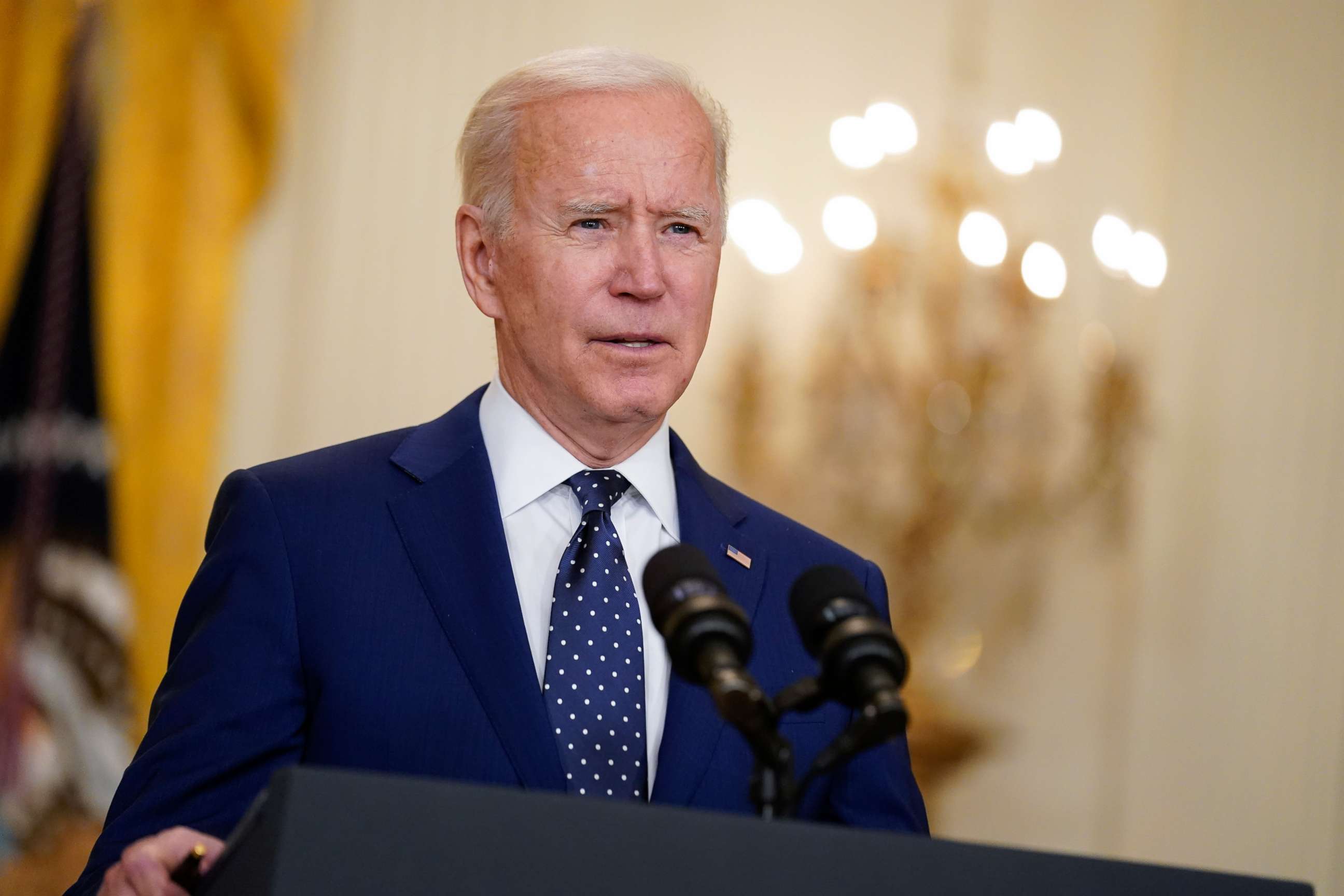Biden calls India's Modi, pledging assistance amid dire coronavirus outbreak
The U.S. now says it will release up to 60M vaccine doses to other countries.
President Joe Biden spoke to India's Prime Minister Narendra Modi on Monday, pledging U.S. assistance after growing pressure on Washington to help.
The U.S. will also share as many as 60 million doses of the AstraZeneca vaccine with other countries "as they become available," according to the White House senior adviser for COVID response Andy Slavitt. The White House has not said yet which countries will receive those doses.
Public health experts and aid agencies had been urging the Biden administration to start sharing COVID-19 vaccine dose as the U.S. population is increasingly vaccinated, but outbreaks worsen in several other parts of the world -- risking the mutation of new variants and stalling the reopening of the global economy.
That's been particularly true of India, which faces an increasingly dire crisis and historic new numbers of cases each day.
While the country is one of the world's top vaccine manufacturers, the vast majority of its billions of citizens are not vaccinated, and its manufacturers now face a shortage of the raw materials needed to produce doses.
Indian officials and public health experts have been critical of the Biden administration for not exporting more vaccine supplies to India, especially after the U.S. had given over 200 million shots.

The White House announced Sunday that would change, and during their call Monday, Biden "pledged America’s steadfast support for the people of India," the White House said, "including oxygen-related supplies, vaccine materials, and therapeutics." The U.S. is diverting an order of raw material necessary to produce AstraZeneca vaccine directly to India's Serum Institute.
Biden's ambassador to the United Nations said earlier on Monday that the U.S. is also providing rapid diagnostic kits, ventilators, public health teams from the Centers for Disease Control and Prevention and the U.S. Agency for International Development, financial support for vaccine expansion, and perhaps most importantly oxygen generation supplies -- which Indian hospitals have run out of, causing scenes of agony across the country.
Psaki emphasized that India's requests have focused on short-term relief supplies, as health care providers in India run short on oxygen.
"There are a number of areas that are of great interest -- or are great need to India at this point in time. Oxygen is one of them. At India's request, we are exploring options to provide oxygen and related supplies. The Department of Defense and USAID are pursuing options to provide oxygen generation systems, We may be in a position to reroute shipments planned for other countries with lower immediate needs, given the urgency of the conditions in India," she said Monday.

Psaki also noted the administration is exploring options to provide field oxygen generation systems that have been used in U.S. field hospitals, and identifying commercial suppliers of the COVID-19 treatment remdesivir.
Prime Minister Modi did not ask Biden directly to send doses of readily-available vaccines, according to a White House official. Modi and Biden also discussed the idea of waiving intellectual property rights on vaccines to expedite development and manufacturing, although a White House official would not say whether Biden supports the idea. Progressives like Senator Elizabeth Warren have urged the White House to support such initiatives.
State Department spokesperson Ned Price denied Monday that the U.S. government has been slow to come to India's aid.
"It is certainly not the case that what we have spoken to in recent hours is the start of our engagement, but we recognize that as the current outbreak has taken incredibly concerning turns in India, that there was more we could do, and we in consultation with our Indian partners have determined that the steps I referred to earlier are available to us and they would be of great benefit to our partners in India," Price said.
He said the U.S. government was working "nonstop ... to deliver on an urgent basis the supplies most needed within India" and will continue "to assess, based on our own capacity, what more we could do."
Though the White House has not said whether the eventual 60 million doses of AstraZeneca vaccine will go to India, a White House official confirmed about 10 million of those could be released soon, as soon as the FDA signs off on a quality review. The official expects another 50 million AstraZeneca doses could be manufactured and approved in the U.S. between May and June, for a total of 60 million to be shared around the globe.
Once those doses are FDA approved, "our national security team, or COVID team, working with the State Department and others -- we're going to assess a range of requests, a range of needs around the world," Psaki said.




